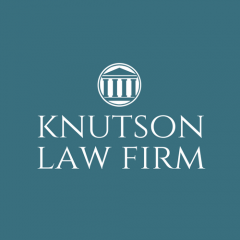Bankruptcy Attorney in Benton, Arkansas
Saline County bankruptcy attorney Gregg Knutson has been handling bankruptcy cases, debt negotiation, debt settlement, and credit repair matters for over twenty-four years. We represent clients in Benton, Bryant, Little Rock, and surrounding areas. Call (501)224-2928 to speak with a Chapter 7 or Chapter 13 bankruptcy attorney to find out if bankruptcy is right for you. We also handle Chapter 11 business reorganization bankruptcy cases.
When faced with a loss of employment, foreclosure, repossession, lawsuit, or garnishment, a bankruptcy attorney can advise you if bankruptcy is the best option to preserve your property and eliminate debt. Bankruptcy can help reduce your stress, stop collection activity, and get you back on the road to a solid financial future.
Chapter 7 bankruptcy eliminates most unsecured debts like credit cards, medical bills, and deficiency claims from a repossession or foreclosure. Some tax debts can also be discharged in bankruptcy. To see if you qualify for Chapter 7 bankruptcy, your attorney will need to obtain your last six months of paystubs, list of assets, most recent bills from all creditors, and your most recent tax return. Your attorney may also ask you to complete a bankruptcy questionnaire to obtain more detailed information which will be used in preparing your bankruptcy petition.
To file for Chapter 7, you must complete a credit counseling session and file a bankruptcy petition with the bankruptcy court. The petition contains a detailed list of your debts, assets, income, monthly living expenses, and a statement of financial affairs. You must also provide the Chapter 7 trustee a copy of your most recently filed tax return.After filing, you will be required to attend a proceeding called a “meeting of creditors”. At the meeting of creditors, a Chapter 7 trustee will verify your identity and ask you questions about your bankruptcy petition to verify its accuracy. The meeting of creditors typically lasts less than five minutes, and your attorney will be present with you the whole time. After the meeting of creditors, you will normally receive a discharge from the bankruptcy court within four to six months.
Chapter 13 bankruptcy affords you the opportunity to restructure your debts, and is normally used to stop a foreclosure or repossession. Chapter 13 is also required if your household income exceeds certain dollar limits. Chapter 13 bankruptcy requires that you propose a plan of reorganization to “catch up” any delinquent payments on secured loans within five years. In addition, Chapter 13 bankruptcy has the added benefit of allowing you to adjust the interest rate on a car loan, and in some cases reduce the balance owed. Chapter 13 is different from Chapter 7 because it requires you to make monthly payments to a Chapter 13 trustee for a minimum of three years, and maximum of five years. When a Chapter 13 trustee receives your monthly payments, he will distribute the plan payments to your creditors in accordance with your Chapter 13 plan. The Chapter 13 plan is a court-approved payment plan that dictates how creditors are to be paid while you are in bankruptcy. When you have made all of the required payments into your Chapter 13 plan, you will receive a discharge of the remaining unsecured debts. Ordinarily, Chapter 13 clients are able to keep their home, automobile, and other property upon successful completion of their Chapter 13 case.
A powerful benefit of both Chapter 7 and Chapter 13 bankruptcy is the automatic stay. An automatic stay is a court order that prohibits all collection activity as soon your bankruptcy case is filed. For example, the automatic stay stops creditor calls, demand letters, lawsuits, foreclosures, repossessions and garnishments.
If you are having trouble paying your debts, call (501)224-2928 to speak with a bankruptcy attorney. Find out your options before liquidating your retirement account or other assets, to see if there is a way to protect your property from creditors. In most bankruptcy cases, clients are able to keep their life savings, retirement accounts, home, car, and other property. Call now to find out more about your bankruptcy options.
